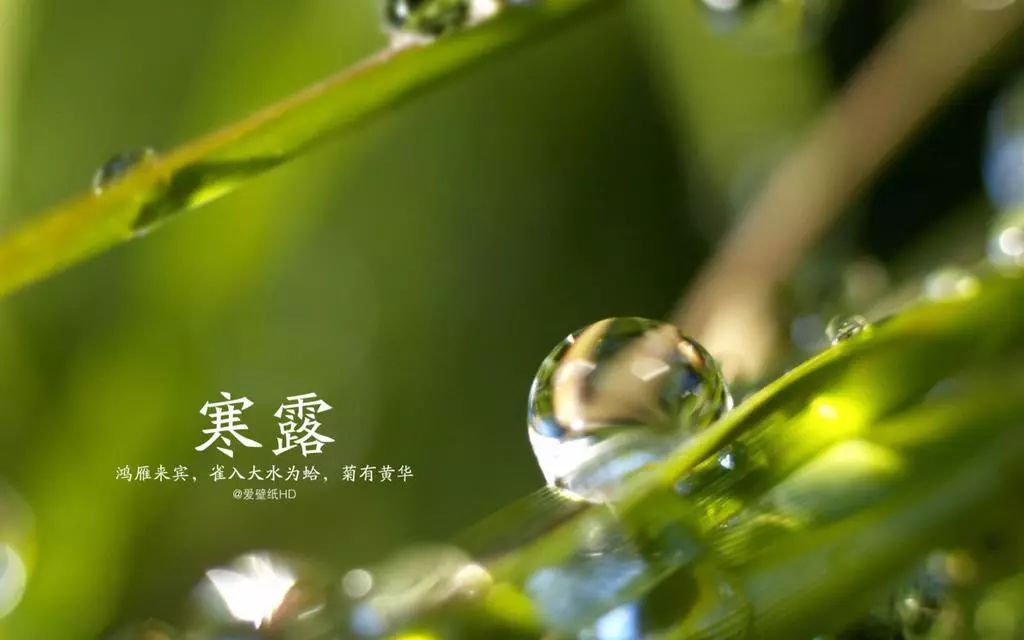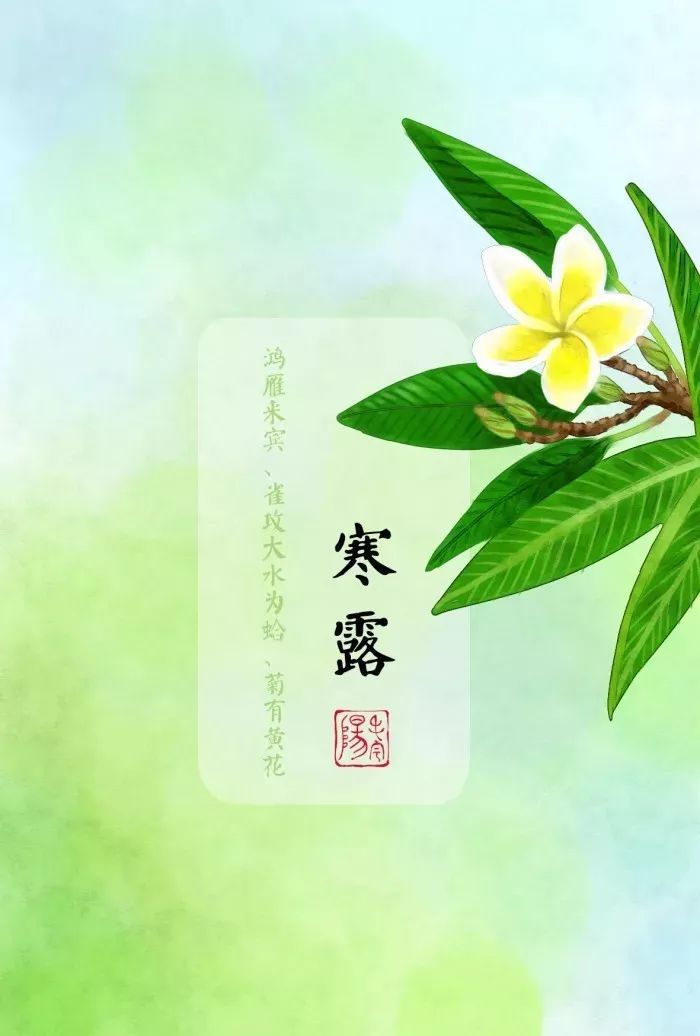Abstract:,,The Cold Dew Festival, also known as the Autumn Festival in China, is a traditional cultural and folk festival celebrated on the first day of the ninth lunar month. It involves various customs and traditions such as worshiping ancestors and gods, burning lanterns, and eating mooncakes. The festival marks the beginning of autumn and the harvest season, symbolizing peace and reunion among family members. The festival is also associated with legends like that of Chang'e, the Moon Goddess.
In the Chinese lunar calendar, Cold Dew Festival is one of the twenty-four solar terms, marking the beginning of autumn and the onset of cooler weather. It falls on the day when the sun crosses the celestial equator and moves southward, ushering in a noticeable drop in temperature and a noticeable increase in autumn's chill. This festival is known for its unique cultural significance and profound impact on traditional Chinese agriculture and daily life.
Cold Dew Festival, which usually falls in late October, is an important time for nature's renewal and transformation. As the weather gradually cools down, the air becomes more crisp and clear, and nature's creatures prepare for winter. This period is marked by noticeable changes in the environment such as falling leaves, drying fruits, and the appearance of autumn flowers like chrysanthemums.
In English, Cold Dew Festival can be translated as "Cold Dew Festival" or "Cold Dew Solar Term". The term 'Cold Dew' refers to the phenomenon of morning dews becoming more pronounced during this period due to the lowering temperature. The term also suggests a sense of coolness and crispness that characterizes this festival.
The Cold Dew Festival has a rich cultural heritage in China. It is a traditional time for honoring ancestors and gods, with various rituals and customs observed to seek their blessings and protection. People also visit temples and pray for good health, safety, and prosperity during this period. The festival also marks the beginning of harvesting crops like pears and apples, which are considered auspicious fruits due to their round shape and symbolize completeness and harmony.
In addition to its cultural significance, Cold Dew Festival also has a profound impact on agriculture. As the weather becomes cooler, farmers take advantage of this period to harvest crops like rice, soybeans, and peanuts that have been grown during the summer months. They also prepare their fields for the next planting season by plowing the soil and clearing weeds. The festival is also a reminder for farmers to take measures to protect their crops from the upcoming winter's cold weather.
The Cold Dew Festival also plays an important role in daily life. People take this period as an opportunity to reflect on their health and well-being. With the cooler weather, people are encouraged to stay indoors more often and take care of their bodies by eating warm and nourishing foods like red dates, black beans, and other traditional Chinese medicinal herbs that help maintain bodily balance and health.
Moreover, Cold Dew Festival is also associated with various traditional crafts and activities like kite flying, lantern making, and playing chess outdoors. These activities help people celebrate the festival in a more traditional way and also provide them with an opportunity to bond with family members and friends.
In conclusion, Cold Dew Festival is an important solar term in China that marks the beginning of autumn and the onset of cooler weather. It has a rich cultural heritage that reflects China's traditional practices and beliefs. The festival also plays an important role in agriculture and daily life by providing farmers with an opportunity to prepare their fields for the next planting season and encouraging people to take care of their bodies by eating nourishing foods and engaging in traditional crafts and activities.




 京公网安备11000000000001号
京公网安备11000000000001号 京ICP备11000001号
京ICP备11000001号